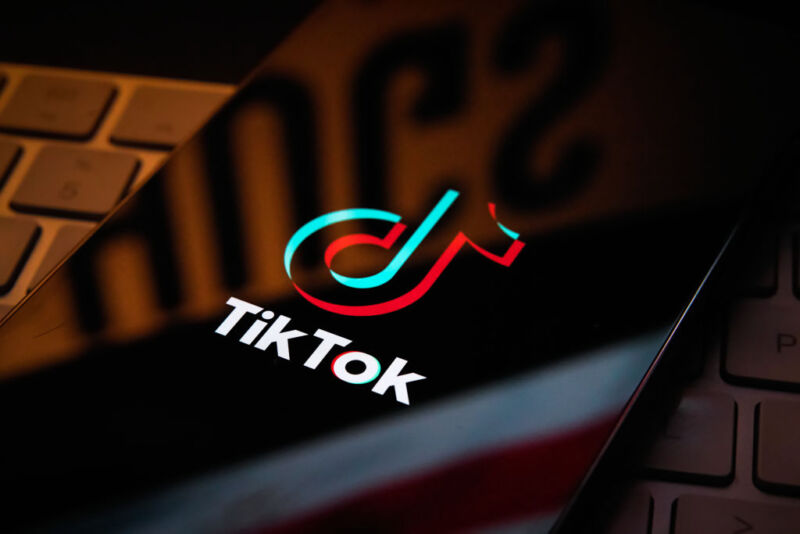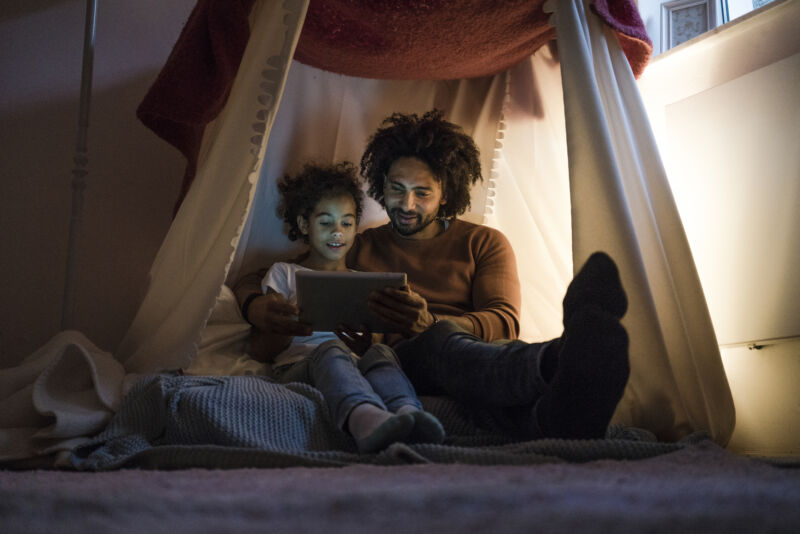DOJ sues TikTok, alleging “massive-scale invasions of children’s privacy”

The US Department of Justice sued TikTok today, accusing the short-video platform of illegally collecting data on millions of kids and demanding a permanent injunction “to put an end to TikTok’s unlawful massive-scale invasions of children’s privacy.”
The DOJ said that TikTok had violated the Children’s Online Privacy Protection Act of 1998 (COPPA) and the Children’s Online Privacy Protection Rule (COPPA Rule), claiming that TikTok allowed kids “to create and access accounts without their parents’ knowledge or consent,” collected “data from those children,” and failed to “comply with parents’ requests to delete their children’s accounts and information.”
The COPPA Rule requires TikTok to prove that it does not target kids as its primary audience, the DOJ said, and TikTok claims to satisfy that “by requiring users creating accounts to report their birthdates.”
However, even if a child inputs their real birthdate, the DOJ said, TikTok does nothing to stop them from restarting the process and using a fake birthdate. Dodging TikTok’s age gate has been easy for millions of kids, the DOJ alleged, and TikTok knows that, collecting their information anyway and neglecting to delete information even when child users “identify themselves as children.”
“The precise magnitude” of TikTok’s violations “is difficult to determine,” the DOJ’s complaint said. But TikTok’s “internal analyses show that millions of TikTok’s US users are children under the age of 13.”
“For example, the number of US TikTok users that Defendants classified as age 14 or younger in 2020 was millions higher than the US Census Bureau’s estimate of the total number of 13- and 14-year-olds in the United States, suggesting that many of those users were children younger than 13,” the DOJ said.
TikTok seemingly risks huge fines if the DOJ proves its case. The DOJ has asked a jury to agree that damages are owed for each “collection, use, or disclosure of a child’s personal information” that violates the COPPA Rule, with likely multiple violations spanning millions of children’s accounts. And any recent violations could cost more, as the DOJ noted that the FTC Act authorizes civil penalties up to $51,744 “for each violation of the Rule assessed after January 10, 2024.”
A TikTok spokesperson told Ars that TikTok plans to fight the lawsuit, which is part of the US’s ongoing battle with the app. Currently, TikTok is fighting a nationwide ban that was passed this year, due to growing political tensions with its China-based owner and lawmakers’ concerns over TikTok’s data collection and alleged repeated spying on Americans.
“We disagree with these allegations, many of which relate to past events and practices that are factually inaccurate or have been addressed,” TikTok’s spokesperson told Ars. “We are proud of our efforts to protect children, and we will continue to update and improve the platform. To that end, we offer age-appropriate experiences with stringent safeguards, proactively remove suspected underage users, and have voluntarily launched features such as default screentime limits, Family Pairing, and additional privacy protections for minors.”
The DOJ seems to think damages are owed for past as well as possibly current violations. It claimed that TikTok already has more sophisticated ways to identify the ages of child users for ad-targeting but doesn’t use the same technology to block underage sign-ups because TikTok is allegedly unwilling to dedicate resources to widely police kids on its platform.
“By adhering to these deficient policies, Defendants actively avoid deleting the accounts of users they know to be children,” the DOJ alleged, claiming that “internal communications reveal that Defendants’ employees were aware of this issue.”
DOJ sues TikTok, alleging “massive-scale invasions of children’s privacy” Read More »




